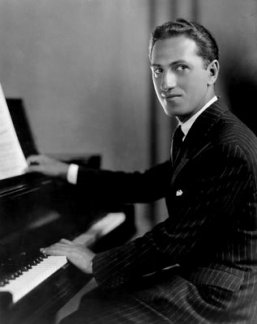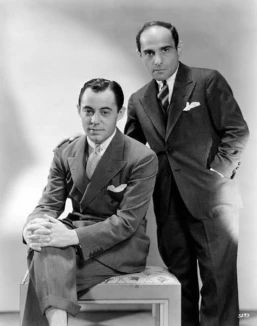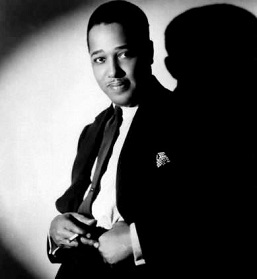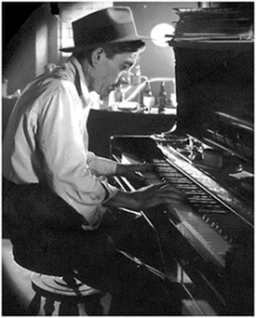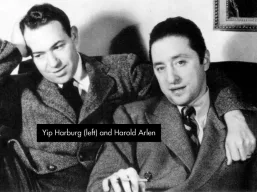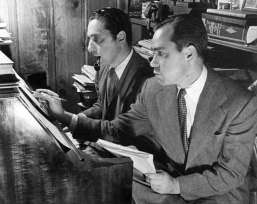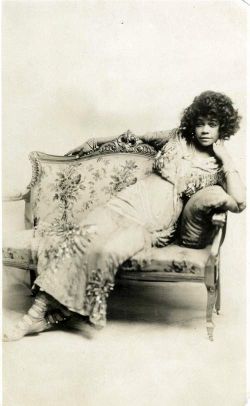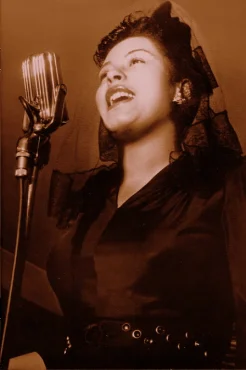Introduction to some major songwriters
_________________________
published on 3 April 2009, with numerous subsequent edits and revisions; latest edit: 8 September 2021
_________________________
This is a brief introduction to some of the major songwriters, songwriting teams, and lyricists to be featured on the site, with lists of selected titles from among their best known compositions. The order of the names in the numbered list corresponds approximately the date of their first major impact.
(above) Sheet music covers for two of the numbers written by Irving Berlin for the Music Box Revue of 1921, the first of four annual editions. “All By Myself” was sung by Irving Berlin at the conclusion of a number called “An Interview,” which he performed with the Eight Little Notes. See The Complete Lyrics of Irving Berlin, edited by Robert Kimball and Linda Emmet, 2001 — “An Interview,” pp. 202-203, “All By Myself,” p. 222.
All By Myself — Bennie Kruger and his Orchestra; recorded in August 1921
.
Verse 2 of “Say It with Music”:
There’s a tender message deep down in my heart
Something you should know, but how am I to start?
Sentimental speeches never could impart
Just exactly what I want to tell you
Great American Songbook is a term which refers to the interrelated music of Broadway musical theater, the Hollywood musical, and Tin Pan Alley, in a period that begins roughly in the 1920s and tapers off rapidly from the late 1940s to the middle 1950s due to various forces: end of the big band era, television, decline of musical theater audience, the divergence of jazz and popular music, the emergence of rock and roll and other popular music forms. Aside from the enduring popularity of the music of the GAS era in its original context, it also became, and remains, the central repertoire of jazz musicians. In jazz, and elsewhere, these songs are referred to as “standards“.
Many of the standards which make up “The Great American Songbook” were written by teams, often only two, a music composer and a lyricist. Irving Berlin and Cole Porter were anomalies in that, with the exception of early in Berlin’s career when he frequently contributed only lyrics, each nearly always wrote both the words and the music of a finished song. I intend to do sections on the writing partnerships and the solo composers. There may be features on selected lyricists.
The list of songwriters and songs that follow are derived from the Wikipedia page Great American Songbook. Composers and songwriting teams considered central to the creation of the Songbook include, but are not limited to the those listed here, accompanied by some of the most widely known and enduring song titles by each.
 * Harold Arlen: With words by Yip Harburg — Over the Rainbow, It’s Only a Paper Moon; with lyricist Ted Koehler — Stormy Weather, I’ve Got the World on a String, I Gotta Right to Sing the Blues. With lyrics by Johnny Mercer — One for My Baby (and One More for the Road), That Old Black Magic, Blues in the Night, Come Rain or Come Shine
* Harold Arlen: With words by Yip Harburg — Over the Rainbow, It’s Only a Paper Moon; with lyricist Ted Koehler — Stormy Weather, I’ve Got the World on a String, I Gotta Right to Sing the Blues. With lyrics by Johnny Mercer — One for My Baby (and One More for the Road), That Old Black Magic, Blues in the Night, Come Rain or Come Shine
* Irving Berlin: Alexander’s Ragtime Band, Always, Blue Skies, Cheek to Cheek, Easter Parade, How Deep is the Ocean (How High is the Sky), Let’s Face the Music and Dance, Puttin’ on the Ritz, Steppin’ Out With My Baby, White Christmas
* Hoagy Carmichael: Stardust, Georgia On My Mind, Lazy River, The Nearness of You, with lyrics by Johnny Mercer — Lazybones, Skylark
* Walter Donaldson: with lyricist Gus Kahn — Love Me or Leave Me, Makin’ Whoopee, My Baby Just Cares for Me, Yes Sir, That’s My Baby; with lyricist George Whiting — My Blue Heaven; words and music by Walter Donaldson — Little White Lies, You’re Driving Me Crazy (What Did I Do)?, At Sundown
* Duke Ellington: Caravan, Don’t Get Around Much Anymore, In a Sentimental Mood, It Don’t Mean a Thing (If It Ain’t Got That Swing), I Let a Song Go Out of My Heart, I’m Beginning to See the Light, Mood Indigo, Perdido, Prelude to a Kiss, Satin Doll (with Billy Strayhorn), Sophisticated Lady
* George and Ira Gershwin: A Foggy Day, But Not for Me, Embraceable You, I Got Rhythm, I’ve Got a Crush On You, Fascinating Rhythm, The Man I Love, Love Is Here to Stay, Love Walked In, Oh, Lady Be Good!, Someone to Watch Over Me, ‘S Wonderful, Summertime, They Can’t Take That Away from Me,
* Jerome Kern: All the Things You Are; with lyrics by Dorothy Fields: A Fine Romance, Pick Yourself Up, The Way You Look Tonight (all three for the Astaire-Rogers film Swing Time (1936); Smoke Gets in Your Eyes; with Ira Gershwin lyrics “Long Ago and Far Away”
* Cole Porter: “Night and Day”, “I’ve Got You Under My Skin”, “Begin the Beguine”, “Let’s Do It, Let’s Fall in Love”, “What Is This Thing Called Love?”, “Love for Sale”, “You’re the Top”, “Just One of Those Things”, “I Get a Kick Out of You”, “Ev’ry Time We Say Goodbye”, “In the Still of the Night”, “It’s De-Lovely”, “My Heart Belongs to Daddy”
* Rodgers and Hart: “Bewitched, Bothered and Bewildered”, “My Romance”, “Have You Met Miss Jones?”, “My Funny Valentine”, “Blue Moon”, “The Lady Is a Tramp”, “Thou Swell”, “Lover”, “Where or When”, “This Can’t Be Love”
*Harry Warren: “The More I See You”, “Forty-Second Street”, “Boulevard Of Broken Dreams”, “Lullaby of Broadway”, “You’re Getting to Be a Habit with Me”, “I Only Have Eyes For You”, “Jeepers Creepers”, “You Must Have Been A Beautiful Baby”, “September In The Rain”, “Lulu’s Back In Town”, “You’re My Everything”, “Chattanooga Choo Choo”, “On the Atchison, Topeka and the Santa Fe”
(above) Fred Astaire with George and Ira Gershwin
(above) Ethel Waters Bing Crosby Astaire and Rogers Frank Sinatra Judy Garland
Some of the major figures in the creation of the Songbook:
- Irving Berlin
- Jerome Kern
- George Gershwin
- Ira Gershwin
- Richard Rodgers
- Lorenz Hart
- Duke Ellington
- Cole Porter
- Harold Arlen
- Harry Warren
- Hoagy Carmichael
- Johnny Mercer
- Jule Styne
Above: In 1911, Alexander’s Ragtime Band became the first major hit song for Irving Berlin. Below: (left) Berlin, c. mid-1910s.
above, right: Guy Bolton, P.G. Wodehouse, and Jerome Kern, collaborators in transforming the American musical at the Princess Theatre beginning in 1915.
(above) Dorothy Fields, a very fine lyricist and librettist

























